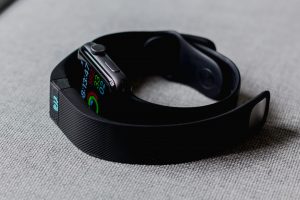SEARCH BLOG POSTS
Do You Really Need A Fitbit
 If you haven’t already heard of the Fitbit, you may be one of the few. Just what is Fitbit and how does it work? Fitbit is a step counter, but much more than just that. It not only counts steps but also acceleration, intensity and patterns. It’s far more precise than other older devices that simply measured numbers of steps. It uses the motion patterns of your walk and sets a threshold where that amount of motion counts as a step. It uses your height and sex to determine many things, like running stride and the amount of calories burned. Although, newer models actually use a GPS application to track stride. Some measure heart rate and use it in the calorie burning calculation.
If you haven’t already heard of the Fitbit, you may be one of the few. Just what is Fitbit and how does it work? Fitbit is a step counter, but much more than just that. It not only counts steps but also acceleration, intensity and patterns. It’s far more precise than other older devices that simply measured numbers of steps. It uses the motion patterns of your walk and sets a threshold where that amount of motion counts as a step. It uses your height and sex to determine many things, like running stride and the amount of calories burned. Although, newer models actually use a GPS application to track stride. Some measure heart rate and use it in the calorie burning calculation.
You may get a false sense of security from these trackers if you’re just tracking steps.
If you’re new to fitness, a Fitbit or other tracker could be a great way to get motivated to keep active. It does have its limitations, though. First, many of these trackers notify you that you’ve hit a goal of 10,000 steps that day and you’re done. There’s no need to go any further, right? That’s not necessarily true. The 10,000 steps is an arbitrary number from research in the 1960s in Japan. It’s based on the number of steps it took for a Japanese man to burn 3,000 calories. Newer Fitbits track all sorts of things, not just steps. So if you’re technology smart and learn to use it effectively, you’ll get a clearer picture of your workout.
Many studies show these types of trackers are ineffective.
It’s like getting membership at the gym. Just buying a membership won’t get you any healthier, thinner or fitter. The same holds true for a Fitbit. You have to dedicate yourself to using the information it provides and actually working out to get results. Just wearing it won’t help. Some studies not only provided financial incentive to use the tracking device to get fit and showed no marked improvement, until that financial incentive was removed and their level of progress dropped further. These are older studies, but demonstrate that just owning a device isn’t enough. You have to want to succeed.
You know your lifestyle and what works for you.
If you’re one of those people who love a challenge and compete with fervor to win (even at baby shower games), then the Fitbit could be a real plus for your new program of fitness. However, you can also get the same rush by working out at the gym and tracking your results. Whether a device tracks you or you do it by noting the number of reps or amount of weight you lifted, it’s all the same. For those couch potatoes, even if 10,000 steps is a random number, if a Fitbit gets you off the couch and walking more by reminding you to do it, it’s well worth the money.
- Don’t give up your membership at the gym so you can afford a Fitbit or quit tracking your own results an letting the device do it all. These devices are helpful, but not the final word in fitness.
- While there’s a danger that you won’t use the Fitbit, there’s also a danger you’ll be dependent on it. You might find yourself glued to the couch while it’s charging, because who wants to move unless it’s counted?
- These devices track the workout you do, but don’t create a program that’s designed specifically for your needs. It also doesn’t show you how to adjust the workout or when to make it harder. It’s simply a tracker.
- While you’ll get a report on how many calories you’ve burned, it’s based on an alga rhythm not a true measure. It can give you a false sense of security without counting calorie intake. Sticking with a healthy eating plan and program of regular exercise is the only true way.
